Once, in villages within Rakhine State in western Myanmar, the Rohingya community lived, raising families and pursuing livelihoods. However, that existence was shattered on 25 August 2017, when a wave of targeted violence and persecution forced the Rohingya to flee their homes.
The Rohingya people are persecuted Muslim ethnic minority from Myanmar. Forced to flee their homes, they sought refuge across the border in neighboring Bangladesh, leaving behind everything they knew and cherished. Today, over 925,000 Rohingya reside in the world’s biggest refugee camp, in Cox's Bazar.
This is the story of four Rohingya families and the cherished fragments of their former lives they carried with them. Amid the chaos of displacement, these possessions stand as profound symbols of memories, dreams, and hope for a better future. Offering a glimpse into the lives they once knew, they embody the resilience and spirit of a community determined to rebuild, even as each family navigates unique struggles and challenges.
Salamatullah, 42.
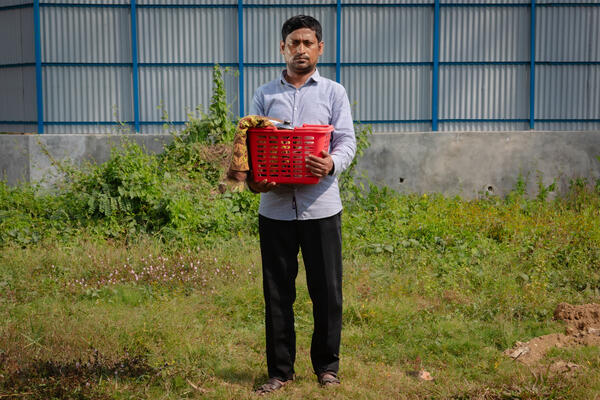
In 2017, two months before the violence intensified, Salamatullah, 42, found himself making a quick decision. With widespread threats of arrests looming, he quickly departed, leaving many of his belongings behind. However, he managed to bring with him some key items: family pictures, a court document, a blanket, a Tiffin carrier for food, and a basket to carry his things.
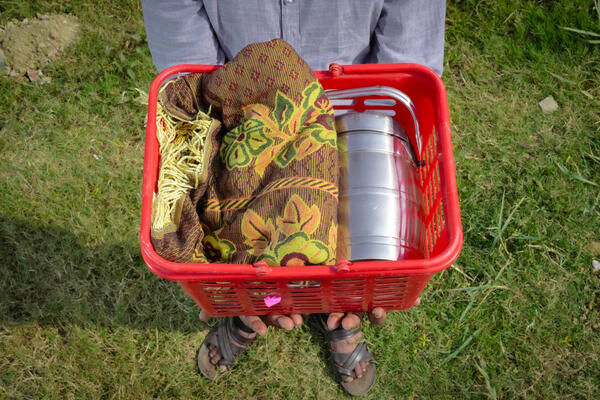
"These items were all I could gather in the limited time. The pictures, especially, provided a source of strength during those two days," he recalls.
His court document tells a story of its own. "I had to pay a fine to secure my release from prison" Salamatullah mentions, referring to an arbitrary sentence he faced in the past. "It's a testament I carry, highlighting the challenges we sometimes endure without just cause."
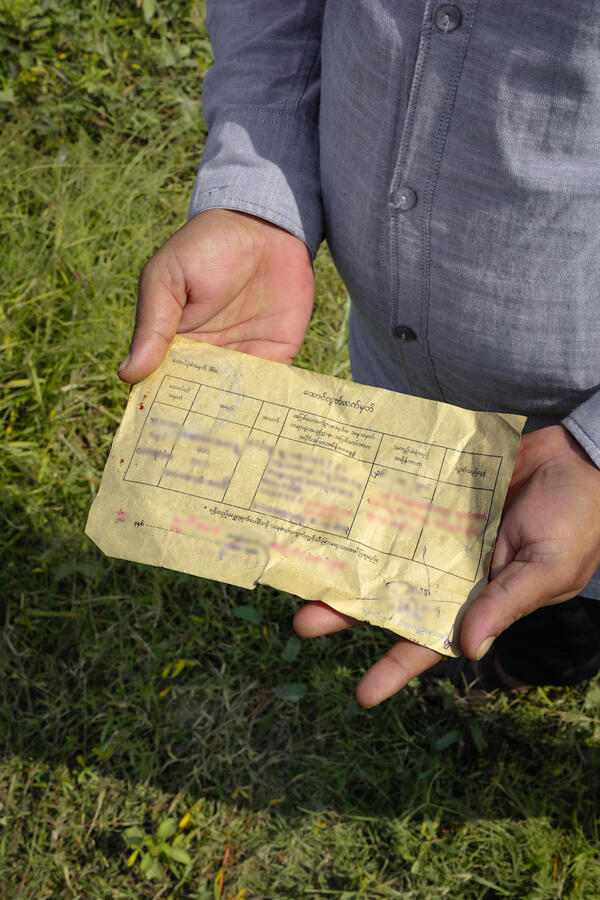
While Salamatullah made his journey alone, his wife, Subitara, undertook a separate journey with their three children. They were reunited at the camp after their respective challenging treks.
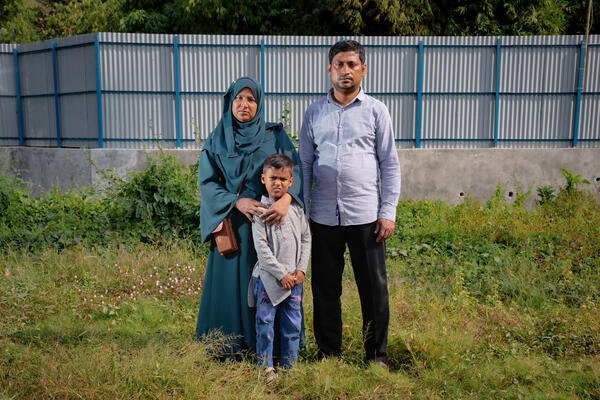
Now in the camp, Salamatullah has many worries. He often speaks about not knowing if they'll ever return home. "With each day, I'm getting older, and everything remains so uncertain," he says. His biggest concern is for his children. "What keeps me up at night is thinking about my children's future in these conditions. More than anything, I want them to have a chance at a good education and their rightful freedoms."
Abdulshakour, 43.
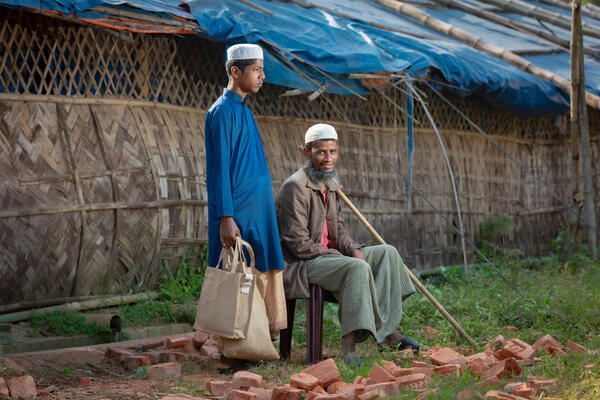
In Myanmar, 43-year-old Abdulshakour made his living as a fisherman, casting his nets into the river and selling his catch at the local markets. Father to seven children, life for Abdulshakour revolved around his family and his work until the events of 25th August 2017 changed everything.
When conflict erupted around his village, with neighboring areas being targeted, panic and chaos ensued. "Everyone was scrambling to escape," Abdulshakour recounts. In the chaos, he was separated from his family for a harrowing 25 days. Their reunion came during their journey to Bangladesh, a path they took by boat.
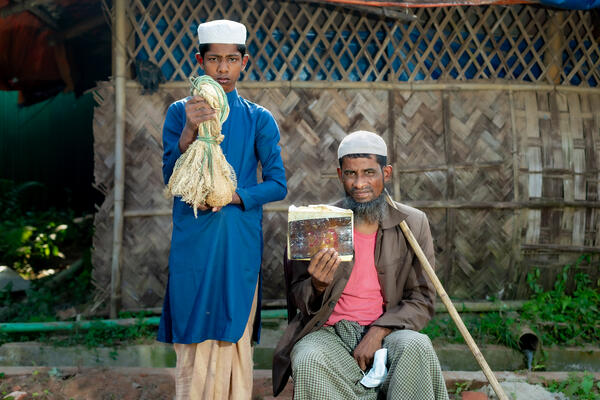
Given the constraints of the escape, people were advised to carry only one essential item. For Abdulshakour, the choice was obvious - his fishing net. "I believed it would be useful here," he shares. However, a physical impediment later prevented him from fishing in his new environment.
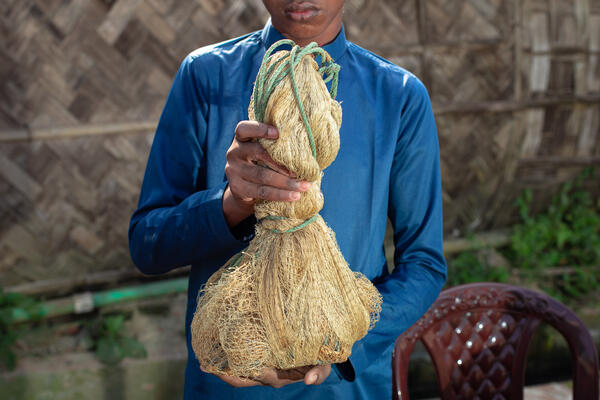
Life at the refugee camp presents its own set of challenges. "The camp has remained the same size, but its population has swelled since 2022," he notes. To supplement their meals, families sometimes resort to selling their vegetable rations to diversify their diet. "We can't always get fish," Abdulshakour adds, emphasizing the need for varied nutrition. The birth of one of his children in these conditions amplifies the reality of their situation.
Amidst it all, a house number from his home in Myanmar remains with him, a connection to a life paused. It serves as a tangible link to the memories and the existence he once knew.
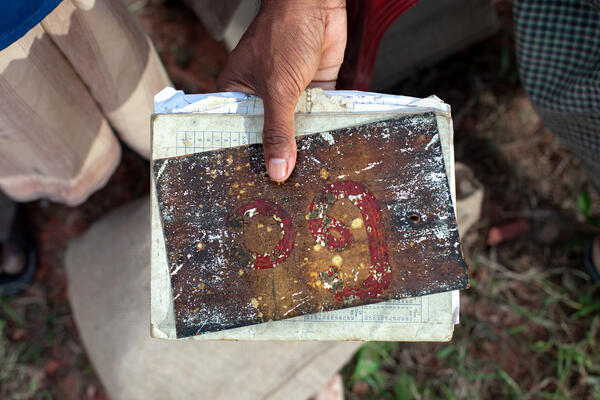
Connecting with his two brothers-in-law back in Myanmar, he's updated about the ongoing constraints that limit their movements to safer areas. For Abdulshakour, his heart remains tethered to his homeland. "I deeply miss my land and my family," he says, echoing the sentiment of many, "and hold onto the hope of returning."
Melua, 65.
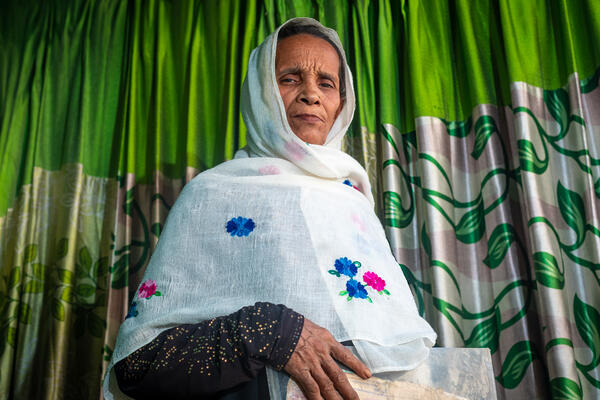
At 65, Melua found herself amidst upheaval. As tensions escalated, her family made the difficult decision to leave their home, eventually arriving at the camp on Eid Al Adha in 2017. Facing the pressing decision of what to carry with her, Melua recalls, "In the urgency of it all, I grabbed a few essential documents and our family portraits: my daughter's birth certificate and a family photo. I even left behind clothes that I had freshly washed."
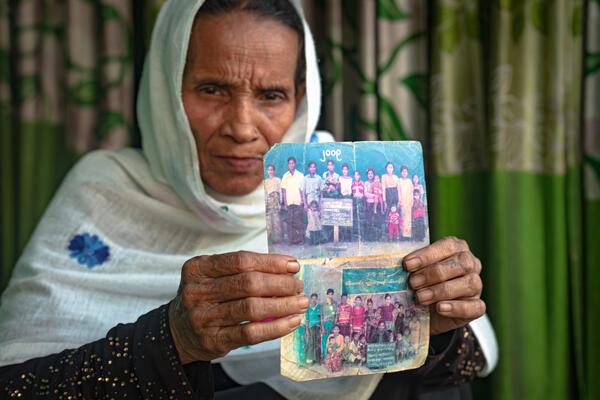
Melua 's choice was rooted in pragmatism. The documents were not only emblematic of her family's history but could also have potential utility in uncertain times ahead. This was a stark contrast to the relatively peaceful times they had experienced before the outbreak of violence.
She remembers her earlier life in Myanmar with unmistakable clarity: the pillars of her home, the fence, the stretch of land she owned, the chickens, and her favorite spot for meals. Any mention of her homeland brings forth an emotional response from her. "It's hard to talk about it without shedding tears," she admits.
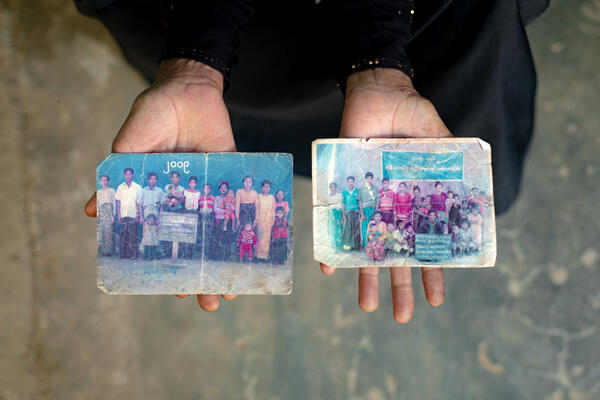

Yet, her thoughts on returning are contingent upon certain conditions being met. "For us to consider going back," she explains, "there has to be an assurance of safety, non-discrimination, citizenship rights, and opportunities for the next generation—especially access to education." In a place of displacement, it's this hope for a brighter and educated future for her descendants that drives Melua's spirit forward.
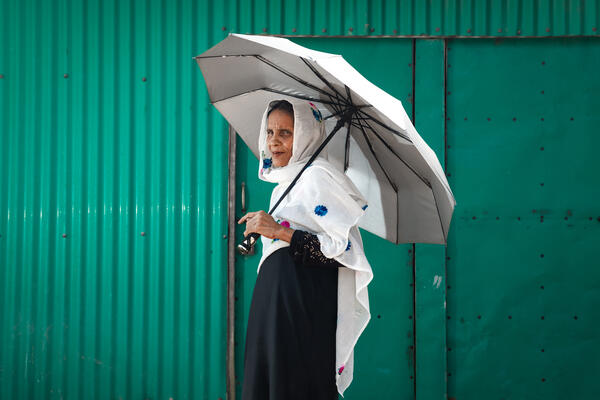
Habibullah, 52.
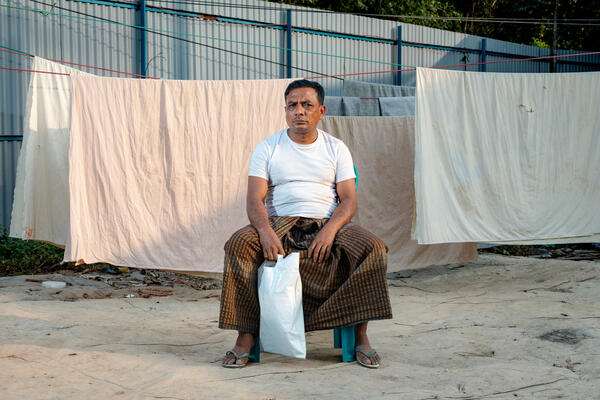
In Myanmar, Habibullah, 52, worked as a driver, ferrying passengers from one side to another. Father to two daughters and four sons, he recalls a time when life was stable, "until 2017 – a year that upended the equilibrium.
When violence surged, it was ordinary civilians like Habibullah who found themselves caught amidst the turmoil. "Our villages became targets," he recalls with a heavy heart. "Staying there was no longer safe. We were left with little choice but to leave or risk our lives." Given only a few days to make a life-altering decision, and with the intensity of the fighting approaching, Habibullah and many of his neighbors sought temporary safety in the mountains.
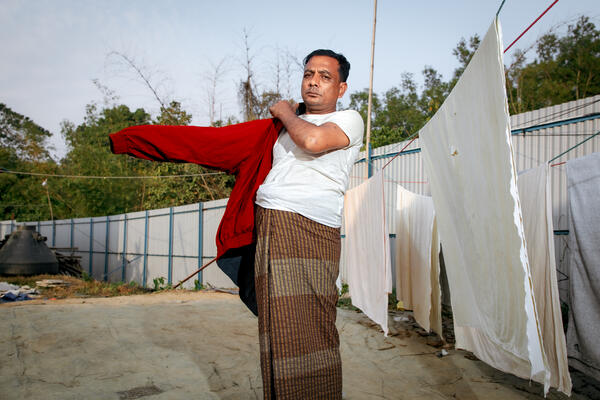
"The journey brought us close to the river on the Bangladesh border, nearly 50 miles away," says Habibullah. "Hidden and trying to stay safe, the haunting sounds of distant gunshots and the terrifying sight of bullets were stark reminders of the dangers around us." The chaos separated many, but they were later united at the refugee camp.
Despite the grim circumstances, Habibullah's foresight saw him holding onto his valuable documents and driver's license. "In these testing times, these are my proofs of identity," he says. Knowing the potential hurdles in a foreign place, he realized that these documents would be crucial in establishing his roots and ensuring some level of security in unfamiliar surroundings.
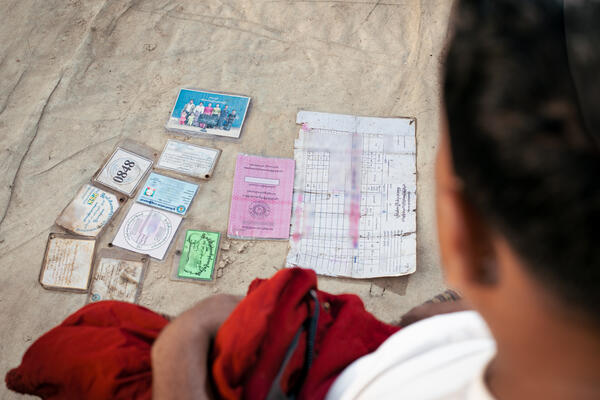
Looking ahead, Habibullah expresses a deep longing for his homeland. "If the situation improves in Myanmar, I will definitely return. Who wishes to leave their country? Who desires to be stateless, without any recognition?" His voice carries the weight of nostalgia, "I miss everything about Myanmar - my family, my yard, my cattle, my home, and the graves of my parents."
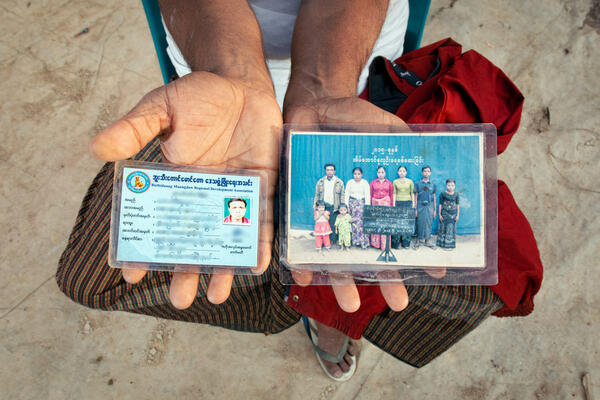
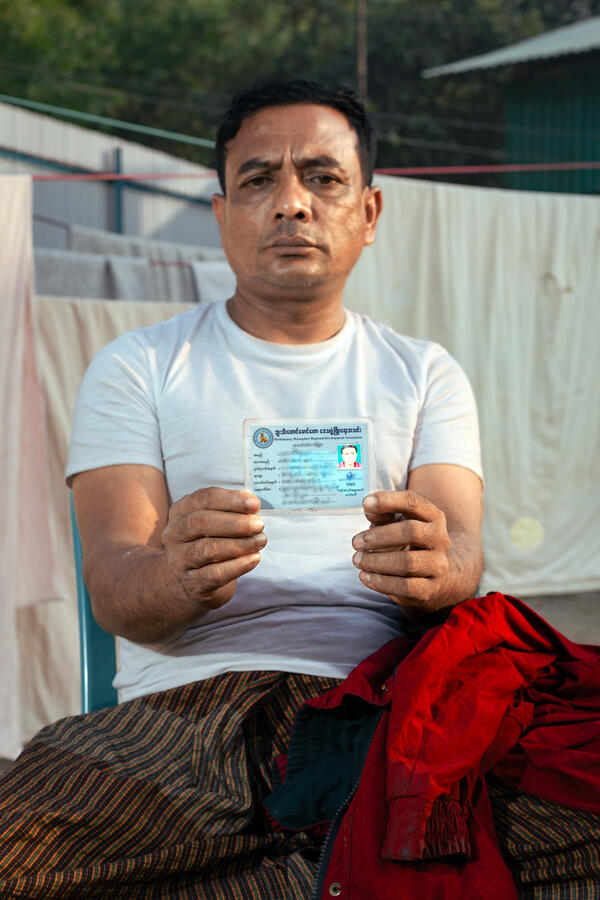
As more Rohingya refugees arrived at the camps, Médecins Sans Frontières (MSF) continued to offer medical humanitarian assistance. MSF has been operating in Bangladesh since 1985 and in Cox’s Bazar since 2009, establishing the Kutupalong field hospital to serve both refugees and the local community. After the 2017 influx of Rohingya refugees fleeing targeted campaigns of violence in Myanmar, MSF ramped up its operations in Bangladesh to address increasing health needs. By 2019, the focus transitioned to long-term health care, catering to chronic illnesses like high blood pressure and diabetes.
Salamatullah, Abdulshakour, Habibullah, and Melua are emblematic of countless refugees for whom a few possessions serve as symbols of strength, resilience, and links to their past. Their journey, laden with challenges, marches on. Armed with treasured belongings and memories, they persevere with hope.



